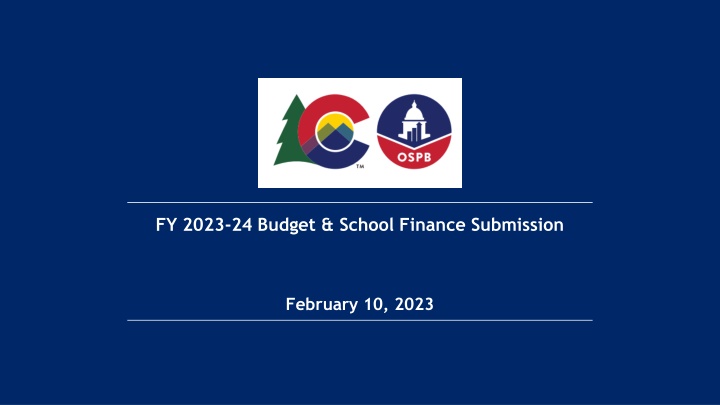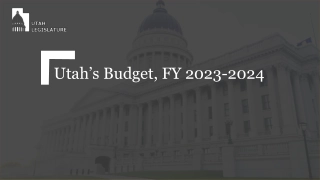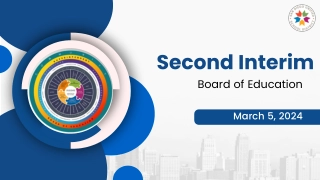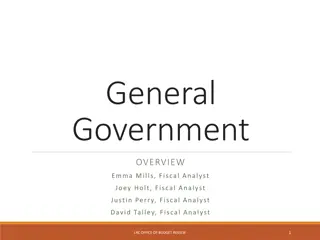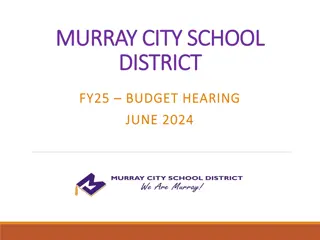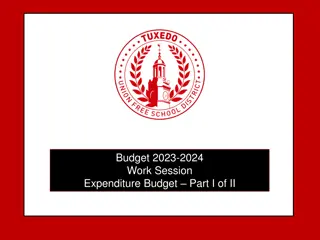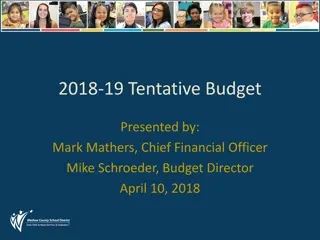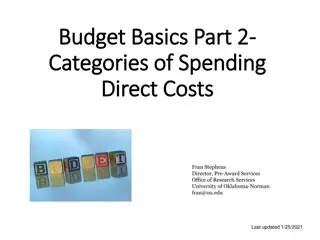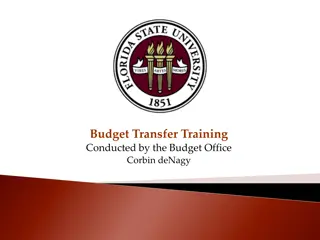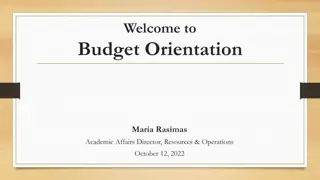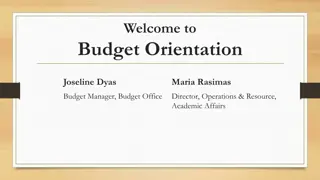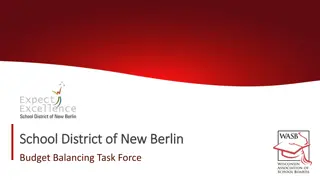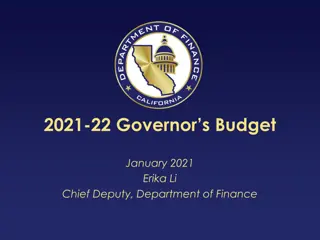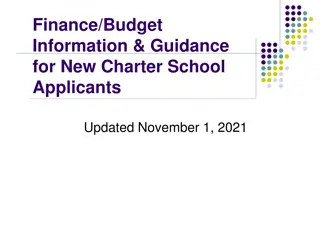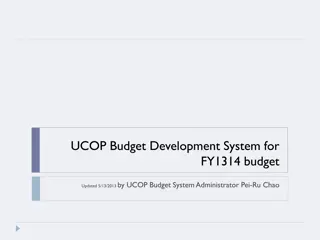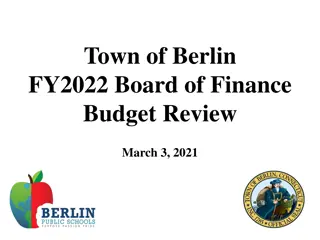Overview of Governor's FY 2023-24 Budget and School Finance Submission
The Governor's FY 2023-24 Budget focuses on maintaining fiscal sustainability by addressing caseload and inflationary pressures while emphasizing the importance of reserves and saving prepays. Significant investment is made in K12 education, with an average increase per pupil and a strategy to reduce the Budget Stabilization Factor. Various scenarios are presented to ensure balanced finances in the event of economic downturns.
Download Presentation

Please find below an Image/Link to download the presentation.
The content on the website is provided AS IS for your information and personal use only. It may not be sold, licensed, or shared on other websites without obtaining consent from the author.If you encounter any issues during the download, it is possible that the publisher has removed the file from their server.
You are allowed to download the files provided on this website for personal or commercial use, subject to the condition that they are used lawfully. All files are the property of their respective owners.
The content on the website is provided AS IS for your information and personal use only. It may not be sold, licensed, or shared on other websites without obtaining consent from the author.
E N D
Presentation Transcript
FY 2023-24 Budget & School Finance Submission February 10, 2023
Importance of a Multi-Year Look at the Budget The Governor s FY 2023-24 Budget is built in a way which balances for FY 2023-24 and sets a path for the State s future to remain fiscally sustainable. Governor s Budget request: Recognizes that caseload and inflation cost pressures are a driving factor of operating growth -- holds other requests to a minimum to stay at 7%. Maintains the required 15% General Fund reserve and grows the State Emergency Reserve. Saves more than half the prepays for FY 2024-25 year cost pressures. Includes a placeholder for potential impacts of forecast.
Saving Prepays Key to Balancing Beyond FY 2023-24 The utilization of these General Fund prepays is a critical tool in balancing both this year s budget and the next in order to align recurring expenses with recurring revenues and avoid growing the state s structural deficit. For more information, see Attachment 7 to the Budget Letter. 5
K12 Education An average increase of $948 per pupil (9.9%) or nearly $21,000 for a classroom of 22 kids, on top of the FY 2022-23 increase of $581 per pupil or almost $13,000 per classroom. Decreases the Budget Stabilization Factor (BSF) by $120 million to a record-low of 2.2% while proposing a sustainable strategy to buy down the BSF by FY 2025-26.
K12 Education Total Program increased $450 million in FY 2022-23 largely from BSF buydown Governor s FY 2023-24 submission increases it another $605 million largely from formula increase
K12 Education BSF Buydown Baseline Scenario
K12 Education BSF Buydown Alternative Scenario - Economic Downturn
Discussion More information can be found in Attachment A of the January 17th budget letter. Questions?
